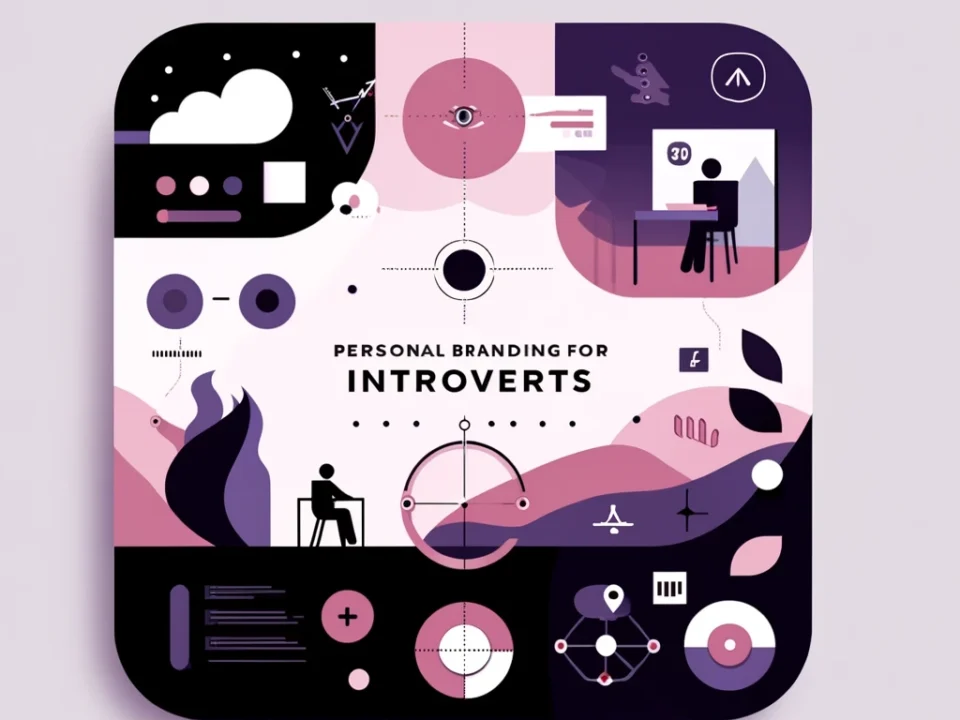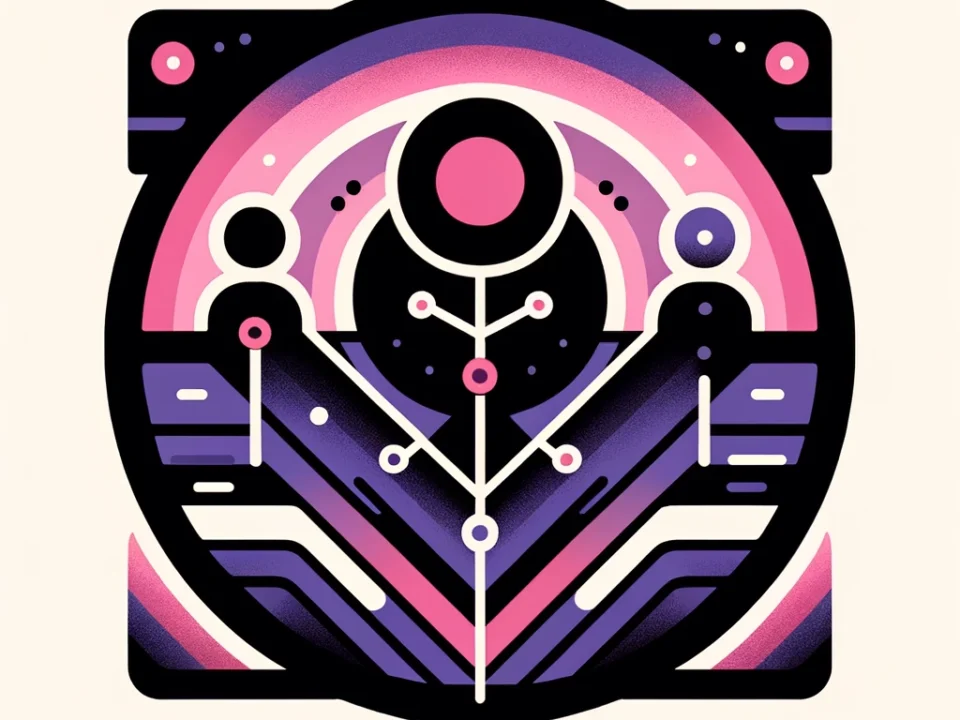Do you find that you are sick of being a faceless corporate drone? Move beyond the standard LinkedIn profile; build a standout personal brand for 2024.
Personal branding is all about giving yourself a unique look and promoting it. It is not enough to look good or get a lot of followers. You need to be real and honest, and you need to present yourself in a way that is consistent with your values and goals. Personal branding is more important than ever in the digital age if you want to stand out in a crowded market and gain your audience’s trust.
Convincing other people of your worth is crucial to your professional and personal success. This is a requirement whenever you are writing your profile, asking for a promotion, running for a leadership position, or applying for a job. You need to build your brand and become at ease marketing it because, like it or not, everyone is a brand in today’s world.
When you think of brands, images of logos, brightly coloured packaging, and catchy slogans likely come to mind. You, too, are a part of the brand; influencers, celebrities, and corporations are just a few examples.
When people think of you, whether by name or in an online image, that is your brand. Attending an interview or establishing a new connection is an opportunity to showcase your brand. The influence and success you achieve are directly related to your brand. Personal brand building, which reflects your values and interests, is an important part of building a successful business or corporate image.
What is a personal brand?
Your story is your personal brand. It shows clients, coworkers, and other professionals what you are capable of and what you stand for. All your hard work and principles have led up to this point. It exists not only in your online presence but also offline as well.
Why is a personal branding so important?
Consider all of your professional experiences where you had to make a good impression, such as job interviews, promotions, or interactions with clients. Having an impressive personal brand can help you build strong connections in all of these situations. When you give thought to your brand with purpose, you take charge of your marketing efforts and can direct your actions and decisions to establish yourself as trustworthy and credible.
Building your personal brand can help you become a better and more authentic version of yourself, even though it may seem like a shallow concept at first. Your decision-making and choices will be more consistent and in line with your values if you have a firm grasp of your individual identity.
The critical elements of an effective personal brand
Before we discuss building a brand, it will be helpful to establish an effective personal brand. Although everyone’s brand is unique, there are some integral components to any good brand.
1. Authenticity.
Faking your brand will never work. People will notice inconsistencies in your presentation when you do this, so do not do it. Be sincere from the very beginning of this process.
2. Values.
What people remember most about you as a person is your brand values, which are your biggest assets. Depending on your field, audience, and industry, these traits may be things about yourself that you want to bring out more. For instance, a public speaker might want to show how much they enjoy having fun. Meanwhile, a businessman may want to appear intelligent and ruthless. An influencer, on the other hand, might want to become known for being cool.
3. Credibility.
Creating a personal brand is not just about achieving goals. It’s about knowing and staying true to your values, even when faced with outside pressures. If you know what you believe in and what you won’t compromise on, you can make choices that mean more than just making money.
4. Distinctiveness.
For successful personal brand building, you need something that sets you apart from the rest. Remember that a lot of people excel at what they do. That being said, you need to reflect on your life and ask: What sets you apart? It may seem like a tricky question at first. You alone have lived your life and can speak from a unique set of experiences.
5. Trustworthiness.
People will have more faith in you and what you can accomplish if you always follow through on your promises and never compromise your principles and values. As a result, you will have more options in both your personal and professional lives.
In 5 steps, learn how to build a marketable personal brand.
1. Figure out your identity
Assigning a personal identity to oneself may appear to be an odd proposition. But what is your level of self-awareness? Unfortunately, many of us forget to reflect and concentrate on ourselves in today’s hectic society. To build a solid personal brand, a bit of introspection is vital.
Here’s a simple exercise to help you with this process. Write the responses to the following questions on a sheet of paper:
What are my biggest fears or insecurities?
What accomplishments am I most proud of?
When do I feel most inspired or motivated?
What situations or environments make me feel most uncomfortable?
What are my core values and beliefs?
What hobbies or activities do I lose track of time doing?
What challenges or obstacles have shaped who I am today?
How do I handle stress or adversity?
When do I feel most at peace or content?
What are the lessons I’ve learned from past experiences?
What are the boundaries or limits I set for myself?
While it may evoke discomfort, sincerity and profound contemplation are essential in this context. If you are having difficulty answering these questions, consider seeking the advice of family and friends. Naturally, as you gain experience and knowledge, your perspectives and the answers to these questions will evolve. However, once you have a better understanding of yourself, you can begin to work on projecting an image of yourself and strategizing your career.
2. Think about how you would like to be recognised.
You can start to think about who you want to be tomorrow once you know who you are now. Try not to think about the things you want too much. Instead, think about the habits you need to have to get those things.
You can begin by researching the industry you want to get into. What skills, knowledge, and reputation do people in that field need to be successful? When you have big goals, break them down into small steps that you can easily reach. In the long run, that will make it easier to gauge your true progress.
3. Choose a niche.
Your brand’s objective should never be to please everyone. You are wasting your resources and energy by doing so. Rather, concentrate your endeavours on establishing your niche and striving to resonate with your specific target demographic.
An individual who specialises in problem-solving is more likely to be contacted by organisations, clients, professionals, and recruiters in comparison to an individual who claims to be able to do everything. Consider the following scenario: In the event of a household leak, would you be more inclined to contact a handyman or a plumber? Even though it is good to work on developing a wider range of skills, having a clear niche can help you focus on dominating a certain part of the market.
4. Make the most of your social presence.
Once you have identified your target demographic, the next step is to find out who they are and what they want. Get the answers you need, and then start making your online presence fit their needs. For instance, if you’re a graphic designer seeking clients, it’s essential to showcase your work through a well-curated online portfolio and share it on popular social media sites.
Maintain a consistent professional image across all online interactions. For example, avoid posting unprofessional content on one platform while presenting a professional demeanor on another. Ensure your online presence is cohesive and reflects a consistent tone and brand image across all platforms.
5. Build Huge network
Trying to get a lot of followers is not the point of networking. Even though having a lot of followers may seem impressive, it will not help you if no one interacts with you. Your true objective is to foster communication and establish connections.
Redesigning and modifying your personal brand
Because of the rapid pace of change in both the professional and digital realms, your brand must also be flexible. You should make sure that your brand reflects who you are as a person by updating it as your body of work grows. But always remember to stay authentic and unique. Gaining control of your well-established brand will provide you with clarity and direction you need to advance in your professional life.





